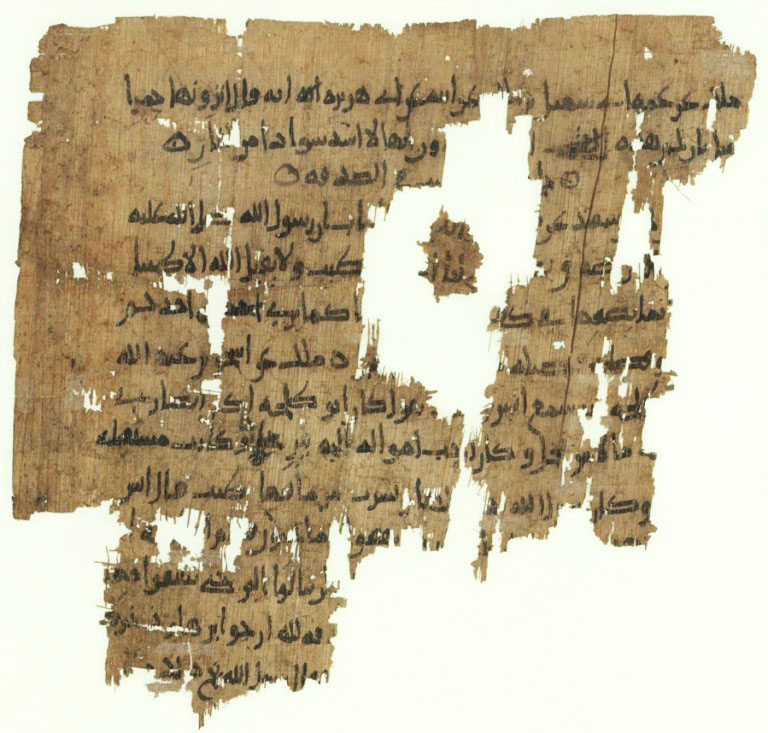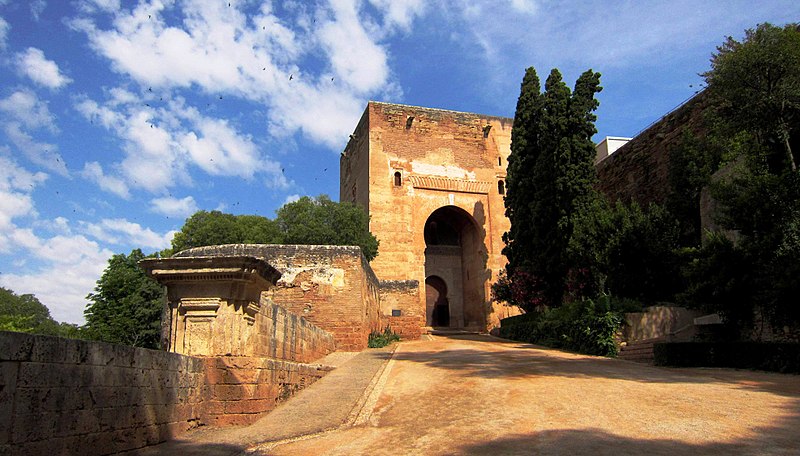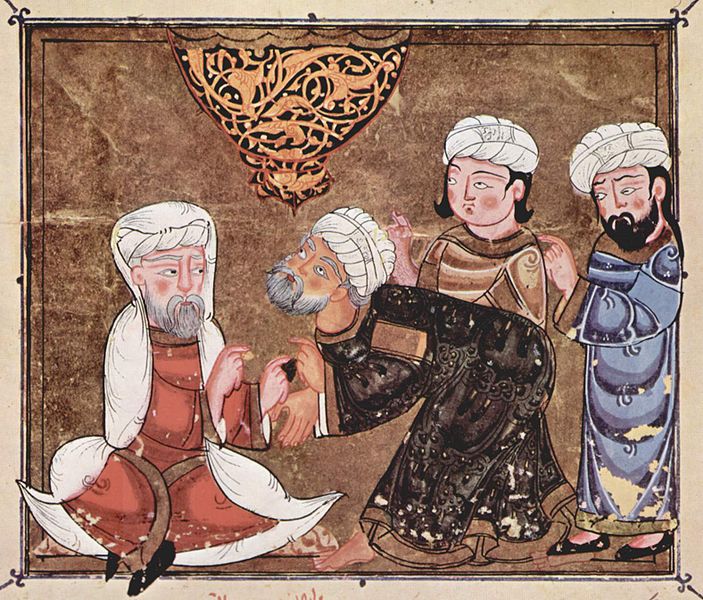Articles
The numerous types of judges in al-Andalus
Article author: Juan Martos Quesada
Date of publication of the article: 19/01/2020
Year of publication: 2020
Article theme: Al-Andalus, History, Jurisprudence.
Without doubt, Qadis or judges were the cornerstone of the legal apparatus of medieval Islam and, by extension, of al-Andalus. Nevertheless, it should be noted that the practice of Islamic law was highly complex and sophisticated in terms of its legal literature, the number of individuals dedicated to the profession and in terms of the administrative structure of the legal system; the diversity and specialization of its judges is proof of this complexity.
In al-Andalus, the legal apparatus, the legal structure, achieved a degree of complexity and organisation which was rarely found in other institutions of its kind in medieval times. In contrast with the provisional nature and the close ties with the government, which was typical of, for example, the legal system in Visigoth society before the Arabs occupied the Iberian Peninsula, the legal institutions of al-Andalus demonstrated, in theory at least, their autonomy with respect to the emir or caliph. The judges or Qadis, not only passed sentence, their decisions created legal precedents.
Meanwhile, the scant attention which Roman law paid to the creation of institutions which were able to adjudicate in litigation between individuals, being more concerned with public law, finds no parallel in Muslim law, based as it was on religious and ethical principles, and thus particularly concerned with personal statutes and private law.
The legal apparatus, the legal structure, achieved a degree of complexity and organisation in al-Andalus which was rarely found in other institutions of its kind in medieval times.
The jurisprudence and the style of the Muslim courts is determined by religious principles which imbue Islamic institutions with a legitimacy which is different from that bestowed by political power. Ultimately, it allows for the formation of a legislative power which lies apart from the government and legal institutions, meaning they are far more autonomous for not having to rigidly depend on the figure of the sovereign. The fact that judges took on functions which were not of a specifically legal nature and the central role they played in certain religious ceremonies, are evidence of the Law-Institution-Religion relationship. Nevertheless, it would be an oversimplification to see a judge, a Qadi –the heart of the legal apparatus– as another religious position: although at the start, in the early days of the hegira, when Muslim law was in its infancy, the Qadi could be seen as an institution which was present throughout the religious world, the subsequent changes in the legal structure, as it increased in complexity and autonomy, means the Qadi took on a fundamentally judicial role.
Characteristics unique to al-Andalus
In terms of al-Andalus, the composition and characteristics of the legal institutional element can be seen not to differ, in general, from that which found in the East and in North Africa, although, as we will shall see later, this does not prevent us from speaking of the “specificity” of al-Andalus Arabic law: the unique characteristics of the al-Andalus legal world, however, are similar to those which can be seen throughout the Muslim world as a whole.
The data obtained from numerous sources allow us to reconstruct the basic structure of the legal apparatus in al-Andalus which, after several false starts during the valiato and the emirate (eighth and ninth centuries), settled upon the administrative form developed by the emir ‘Abd al-Raḥmān II (822-852). The legal system which existed during the Umayyad era, that is, until the beginning of the eleventh century, was repeated with few variations during the Taifa principalities (eleventh century), the Almoravid dynasty and the Almohad caliphate (twelfth century), and even during the Nasrid dynasty of Granada (thirteenth-fifteenth centuries).

The judge, the Qadi (al-qāḍī), was the foundation of the entire legal structure, though naturally they were not the only judicial authority of an Islamic city or community. In practice, their judicial functions were limited to personal matters (marital conflicts, inheritance, etc.) and to civil matters involving a member of the community, for example, a breach of contract.
Qadi al-Bunnāhī (fourteenth century). In his writings, al-Marqaba enumerates some of the Qadi’s specific functions: a) the judge must hear the litigants and dispense justice to those who break the law, seeking to reach a satisfactory conclusion in every instance while adhering to Islamic Law (šarī’a); b) they must ensure justice for the oppressed; c) they must look after the interests of the insane and the mentally impaired; d) rule on wills and inheritances; e) deal with marriages and orphans; f) administer assets from pious donations; g) ensure the safety of the highways; h) punish those who break the law: thieves, adulterers and drunkards; i) they must judge with equally the rich and the poor, men and women; and j) they must at all times choose faithful witnesses, worthy of all credit and honour.
In practice, their judicial functions were limited to personal matters (marital conflicts, inheritance, etc.) and to civil matters involving a member of the community, for example, a breach of contract.
The Qadi were appointed by the sovereign, who did so after consulting their most faithful courtiers, meaning that palace intrigue and attempts to wield influence were often rife; Aside from describing the manner in which they were appointed, al-Jušanī (tenth century) a writer and himself a Qadi, also speaks of Qadis which were appointed by provincial governors, the Walis, who represented the sovereign. However, a third form of appointment also existed in al-Andalus: the ancestral custom by which the community itself chooses its own referees, its own judges, although always officially in the name of the emir or caliph.
One Qadi per city
The extent of a Qadi’s judicial jurisdiction is not entirely clear. Although, it was normal to find one Qadi in every city, several cities had more than one judge at the same time. The duration of the post of Qadi in al-Andalus was highly variable and ranged from those who served for a single day, to those who imparted justice in a city for forty years.
In order to hold the position of Qadi in al-Andalus one did not need to possess any formal qualifications, nor did they require the holder of the post to be especially knowledgeable of the law (this function was fulfilled by members of the šūrà, the Qadi’s consultative council). Nevertheless, in keeping with the teachings of the founder of the Malikí school, Mālik ibn Anas, they first and foremost needed to be fair, righteous, wise and virtuous men. Other writers, in their legal treatises included lists of requirements which the Qadi’s needed to fulfil. Some were mandatory, while others were desirable. The mandatory requirements were the following: a) the Qadi had to be male; b) they had to be intelligent and of sound mind; c) they had to be a Muslim, never an infidel; d) the Qadi had to be a free man, slaves were ineligible; e) they had to be an adult; f) they had to be fair and upright at all times; g) they had to have sufficient knowledge of the Qur’an and the teachings of the sunnah; h) they had to have good hearing and eyesight, as well as possessing the ability to speak.
In order to hold the position of Qadi in al-Andalus one did not need to possess any formal qualifications, nor did they require the holder of the post to be especially knowledgeable of the law, in keeping with the teachings of the founder of the Malikí school, Mālik ibn Anas, they first and foremost needed to be fair, righteous, wise and virtuous men.
The desirable requirements were: a) that the judge had to endeavour to have sufficient knowledge of the Arabic language; b) that they also had basic knowledge of notarial matters; c) it was recommended that they be a pious individual; d) and it was desirable that they were rich, in order that they did not fall into the temptation of bribery, though, if they were poor, the emir or caliph had the obligation to provide them with a salary for their work; e) they needed to be patient, benevolent, forgiving, merciful and humane, particularly toward orphans and widows; f) as far as possible, the judge needed to be knowledgeable in religious matters; g) they needed to be immune to censure and criticism from others; h) they needed to be respectable, firm and steadfast in their rulings; i) they ought not be of illegitimate birth, nor be prone to curse; k) ideally they ought not to have been found guilty of a crime and, finally, k) the Qadi needed to be a skilled individual, taking great care in his deliberations. The Qadi, aside from their purely judicial functions, were occasionally also responsible for running religious foundations, economic organisations of a religious nature (awqāf or religious endowment) and the supervision of the broad set of social services for which religious endowments were intended, meaning the control of a considerable part of what nowadays might be referred to as a “municipal budget for social services”.

Over time, Qadis took on additional responsibilities such as administering the assets of mentally handicapped persons, orphans and, so on, as well as administering wills and testaments and dealing with of matrimonial matters involving young women who lacked a legal guardian.
In other words, the moral prestige of the Qadi of al-Andalus, their supposed detachment from mundane matters, gave the judge a social relevance which had a decisive impact on the Islamic community. This in turn resulted in the state, the powers that be, trying to exercise, increasingly, their control over the judges, once they had their appointed them.
Diversity of social and judicial responsibilities
As expected, the number and diversity of the social and judicial responsibilities of the Qadis meant they required an increasing number of associates and assistants, as well as the appointment of special or auxiliary judges. Let us look at the various kinds of judges and their functions:
- qāḍī l-ŷund (army judge); in the East and in the early chronicles of al-Andalus, they judged troops during a military campaign. However, in the Iberian Peninsula, according to the historian Ibn al-Qūṭiyya (tenth century), the term was also used to designate judges in Córdoba, the judge of the Umayyad capital, until the time of Emir Muḥammad I (882-856), in which the post was held by an individual who does not belong to the ŷund, the army of Syrian origin, changing its name to qāḍī l-ŷamā’a (community judge),
- qāḍī l-ŷamā‘a (Islamic community judge); their functions were similar to the so-called qāḍī l-quḍāt (judge of judges) in the Abbasid East, although in al-Andalus they did not come to attain the role of the highest judicial authority as was the case in the East. Without becoming a kind of Minister of Justice or anything of the sort, judges were appointed to the post by the Umayyad sovereigns of al-Andalus during the ninth and tenth centuries. They were charged with the task of supervising and investigating the conduct of other judges who had been the subject of a complaint.
- qāḍī l-quḍāt (judge of judges); this position only appeared in al-Andalus during the decline of the caliphate, at the beginning of the eleventh century, as a more servile imitation of the post in the East, but with no real authority over other judges.
- qāḍī l-naṣārà (judge of the Christians); they were charged with resolving disputes between Christians when they sought help, or when a conflict arose between a Christian and a Muslim; It is worth noting the scarce information relating to this post found in historical chronicles.
- qāḍī l-‘askar (army judge); They were responsible for administering the law among the troops during a campaign; The title qāḍī l-ŷund (army Qadi), mentioned earlier, only applied in al-Andalus to the troops of Syrian origin in the early years.
- qāḍī l-ankiḥa (marriage judge); Were responsible for all matters related to marriage. Judging by the frequent references to them in contemporary sources and the abundance of practical examples on the subject in the legal treaties of the time, they were undoubtedly highly popular and well-known.
- qāḍī l-miyāh (water judge); there is limited evidence as to the existence of a water judge, whose powers included the ability to arbitrate in conflicts caused by the right to irrigation, etc.
- qāḍī l-ṯagr (border judge); A Qadi with broader powers, sent to the border areas of al-Andalus; This post was best known at the time of the Nasrid dynasty of Granada.
In addition to these special judges with specific functions, there existed a series of secondary judges in al-Andalus who, in practice, were individuals to whom the Qadi delegated certain functions and tasks, and who depended directly on them. The three most important are the following:
- ḥākim; a term occasionally used instead of Qadi —especially by Eastern writers — which up until the present has remained a rather enigmatic figure. For some writers, such as Gaudefroy-Demombynes, they were a magistrate charged with extra-Quranic administrative justice; while for others, such as Dozy, they are a government official responsible for carrying out a sentence handed down by the Qadi; while for other writers, such as Lévi-Provençal, their functions could be confused with those of a ṣāḥib al-aḥkām, the Qadi’s assistant who carried out the judge’s sentences, who became an increasingly important figure in the legal apparatus of al-Andalus, but who initially was a kind of junior judge, charged with administering minor matters or who worked in slums or places which depended on the Qadi, always acting in their name.
- musaddid; According to the writer Ibn Sa‘id (thirteenth century), this post was a kind of judge with limited powers, similar to the contemporary Spanish justice of the peace, who settled litigations in small towns and villages.
- nā’ib al – qāḍī; They acted as a substitute for the Qadi with full powers to resolve legal issues of all kinds.

We have already seen that not only the Qadi had the authority to judge. Aside from the emir or the caliph and their complete liberty to judge a case whenever they pleased, there were a number of institutions which acted as secondary magistracies, counting among their functions the ability to judge and pass sentence on certain cases. At least five other institutions had this ability in al-Andalus: ṣāḥib al-sūq, ṣāḥib al-šurṭa, ṣāḥib al-madīna, ṣāḥib al-radd and ṣāḥib al-maẓālim.
- ṣāḥib al-sūq (the lord of the souk); Their role in al-Andalus was widely studied by Pedro Chalmeta. They held an important post in the municipality, being in charge of the souk, or market, in particular. Their judicial functions were seen, for example, in their ability to act as an arbitrator in disputes between employers and employees, as well as in other cases where it was not necessary to present evidence or in which, in theory, the rights of one party were not disputed by the other. Unlike a Qadi, the lord of the souk could take their own initiative, without waiting for the litigants to come to them or to file a complaint, in an attempt to avoid disputes.
- ṣāḥib al-šurṭa (the lord of the police); they were charged with administering justice, the police force, and made use of their legal powers in those cases in which the Qadi, in either civil or criminal matters, declared himself incompetent to issue a sentence for procedural reasons. Their jurisdiction, which undoubtedly complemented that of the Qadi, was in turn more flexible and arbitrary than this and they had a wide range of correctional penalties at their disposal.
- ṣāḥib al-madīna (the lord of the city); the Zalmedina of Córdoba, examined by Joaquín Vallvé in great detail, was a unique position. Nevertheless, in practice, they focused on a series of very broad and rather complex functions, ranging from maintaining public order to tax collection, as well as the resolution of conflicts, giving them similar powers to the Qadi.
- ṣāḥib al-radd (judge of appeal); two special jurisdictions appeared during the Umayyad period: the ṣāḥib al-radd and the ṣāḥib al-maẓālim. Nonetheless, their precise nature remains obscure due to certain gaps in the documentation: The former was typical of the Muslim West. Lévi-Provençal defines it, based on documentation provided by Ibn Sahl, as an institution to which certain sentences appealed, or “returned”, from the Qadis. Rather than passing their own judgement, they were more involved in matters referred to them by the Qadis due to their “questionable” nature, their approach or some other aspect. The institution declined in importance from the eleventh century in favour of the ṣāḥib al-maẓālim.
- ṣāḥib al-maẓālim; this was essentially an institution to which any Muslim could appeal if they felt they had been harmed or aggrieved due to an unfair decision; it heard only special cases and, although it had wide-reaching powers in the East, as we saw earlier, it made little impact in al-Andalus, as is shown by the few references to the post in al-Andalus sources and chronicles.
In conclusion, we can see that the legal structure of al-Andalus, the legal apparatus of Muslim Spain, possessed a sophistication worthy of centralist states and possessed a robust administrative network.
Source: alandalusylahistoria


